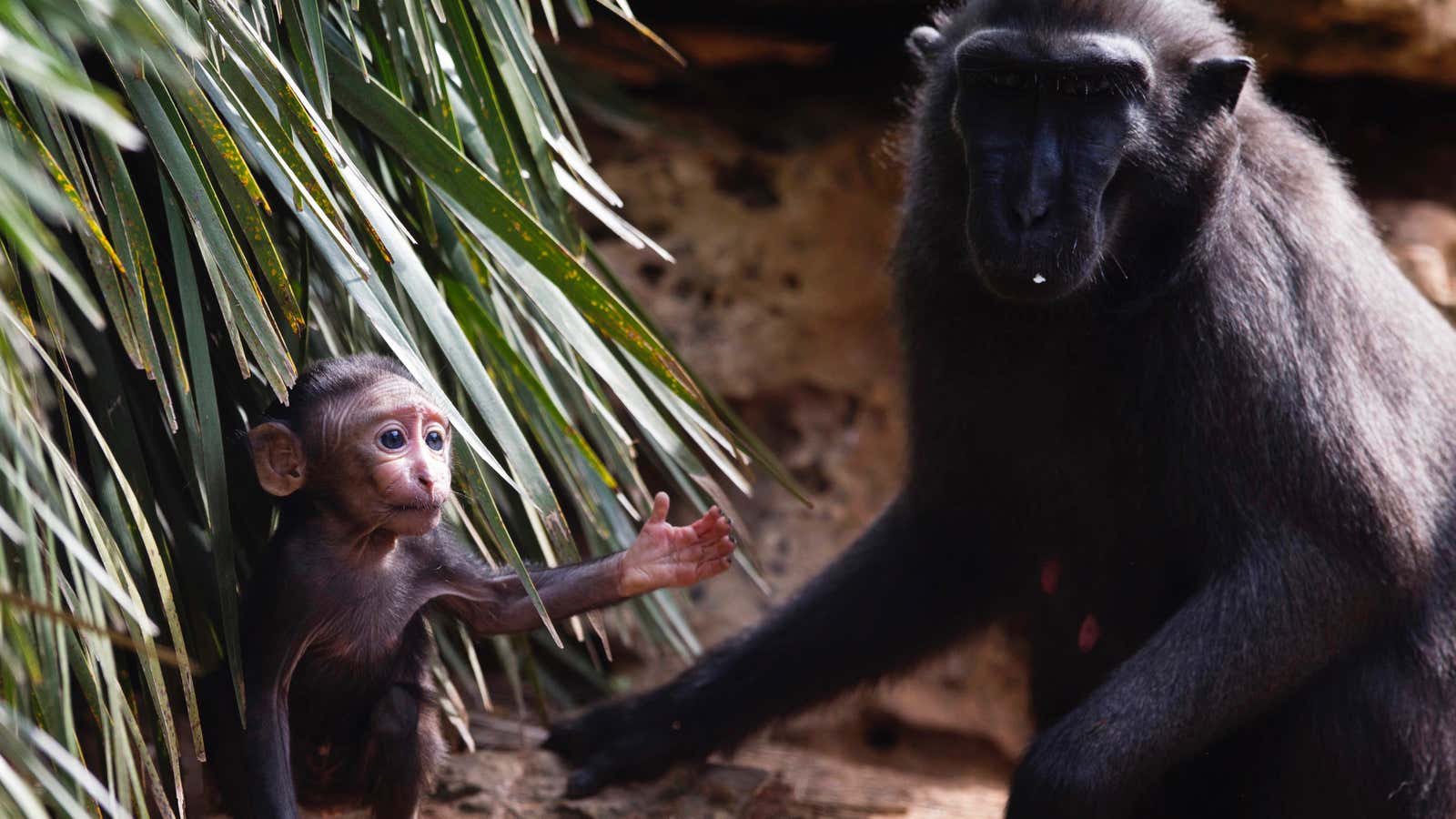A crested macaque with a knack for photography lost “his” copyright lawsuit on April 23. But the case demonstrates that animals can make constitutional claims, and may someday even have rights like those of other “legal people.”
The Indonesian monkey, called Naruto, became famous for taking smiling selfies in 2011, using wildlife photographer David Slater’s camera. The images were subsequently published in a book, Wildlife Personalities, in 2014. People for the Ethical Treatment of Animals (PETA) went on to sue Slater and the publishing company on behalf of Naruto in 2015, claiming that since the monkey had taken the photos, the copyright belonged to him.
Judges disagreed. Naruto had no standing for the intellectual property lawsuit, according to an opinion (pdf) by three judges on the Ninth Circuit Court of Appeals. Yet, the language of the decision in Naruto, a Crested Macaque, by and through his Next Friends, People for the Ethical Treatment of Animals (PETA) v. David John Slater, et al. indicates creatures can indeed claim legal injury and even make constitutional claims. The decision states:
Our court’s precedent requires us to conclude that the monkey’s claim has standing under Article III of the United States Constitution. Nonetheless, we conclude that this monkey—and all animals, since they are not human—lacks statutory standing under the Copyright Act.
In other words, US copyright law doesn’t allow animals to sue. But the law generally recognizes that non-human beings can seek legal relief.
Boston University law professor Steven Wise, president of the Nonhuman Rights Project (NhRP), a nonprofit that litigates on behalf of animals, spoke to Quartz about the distinction. Here, PETA claimed that Naruto could own intellectual property. But because the monkey can’t perform any of the duties associated with property ownership—such as policing and protecting its use (which in this case, PETA did for Naruto)—the court rejected that argument.
Not all rights have associated duties, however. “For example, the 13th Amendment of the US constitution immunizes us from slavery,” Wise says. “But there is no associated duty for individuals. We are simply assured by the constitution that we can’t be enslaved.”
These concepts can theoretically apply to all legal people—and American law and courts around the world recognize that legal “personhood” doesn’t refer exclusively to a human being. For example, in the US, corporations are legally considered people. Meanwhile, legislatures internationally have characterized a chimpanzee, a bear, a national park, a river, a Hindu idol, a mosque, the Amazon rain forest, and other nonhumans as persons.
By contrast, actual people haven’t always been considered legal people by the courts. “For centuries many humans beings, including slaves, women, children, and Jews were not persons, but things,” Wise says.
Obviously, that changed with time. But PETA’s strategy in this case was fatally flawed, Wise argues. The NhRp’s statement explains, “PETA presented no appropriate evidence that Naruto was a ‘person’ who could have any right, much less a claim-right.” Still, it seems increasingly possible that in the future, monkeys and other creatures seeking to protect their legal rights could indeed succeed in court.
